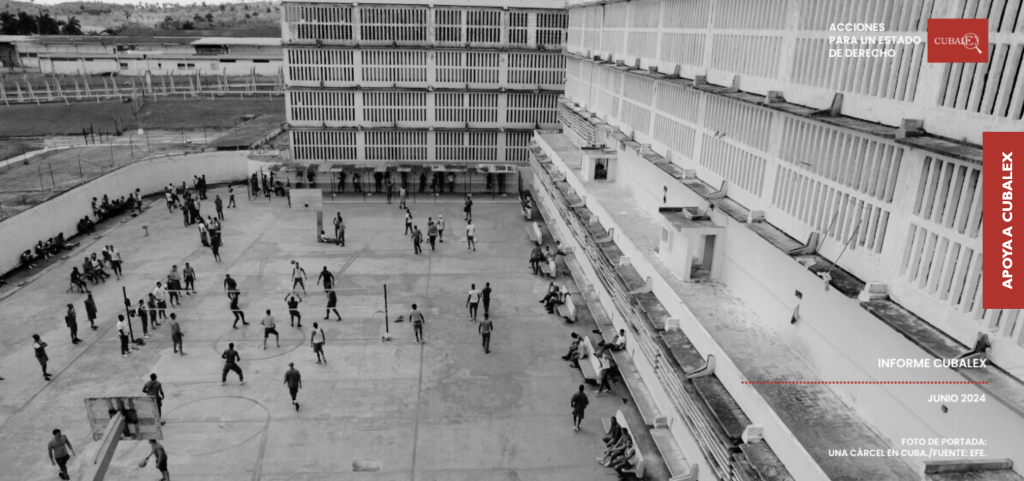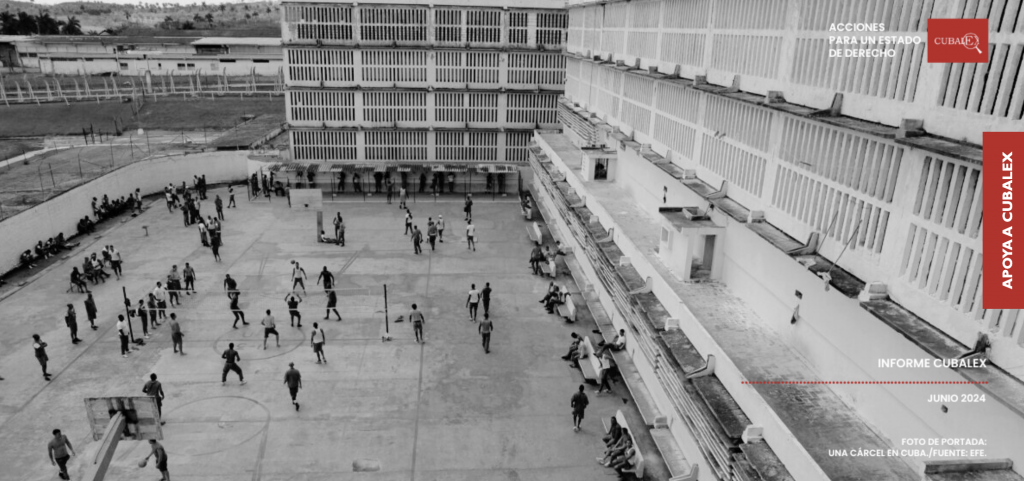
CUBALEX, July 2024 — According to the Penal Execution Law, the conditions of solitary confinement and punishment in Cuban prisons do not meet international standards established by the Mandela Rules. The excessive length of solitary confinement, lack of independent review, and insufficient protection for vulnerable groups are significant incompatibilities that can lead to abuses and human rights violations. These practices not only affect inmates physically, but also have a devastating impact on their mental health and general well-being.
What do the Mandela Rules say?
The Standard Minimum Rules for the Treatment of Prisoners, also known as the Mandela Rules, set international standards to ensure that prisoners are treated with humanity and dignity. No form of torture or cruel, inhuman or degrading treatment is permitted. Practices such as indefinite solitary confinement, confinement in dark or always illuminated cells, and corporal punishment are prohibited. In addition, food or drinking water must not be reduced as punishment. Solitary confinement is defined as keeping an inmate without meaningful human contact for at least 22 hours a day. Prolonged solitary confinement refers to any isolation lasting more than 15 consecutive days. In Cuba, the law allows solitary confinement for up to three months, which does not meet these international standards.
Incompatibilities with the Cuban Penal Execution Law
Rule 45 of the Mandela Rules states that solitary confinement should only be used in exceptional cases, as a last resort, for as short a time as possible and with independent review. It should be authorised by a competent authority and should not be imposed on prisoners with physical or mental disabilities, women or children. However, the length of solitary confinement in a punishment cell in Cuba reveals a worrying difference between official regulations and actual practice. Under Cuban law, solitary confinement can last up to three months, which significantly exceeds the UN Mandela Rules, which consider prolonged solitary confinement for more than 15 days to be a violation of human rights.
Documented testimonies
Cubalex has documented numerous cases of persons deprived of their liberty who have suffered solitary confinement in punishment cells for periods that far exceed both national regulations and international standards. Among these testimonies, the cases of political prisoners such as Félix Navarro, who was in a punishment cell in Guantánamo prison from May 11 to December 16, 2003, accumulating more than seven months in solitary confinement, stand out. Alfredo Felipe Fuentes and others imprisoned during the Black Spring of 2003 endured more than ten months in punishment cells in Guanajay prison. Alcibiades Idelmaro Brizuela, for his part, spent seven months in a punishment cell in Kilo 8, Camagüey, and then a year in solitary confinement on a floor of that prison. Lisandra Rivera spent three months and ten days in a punishment cell in Mar Verde women’s prison, Santiago de Cuba, in early 2017.
Arbitrary and precarious conditions
The reasons for placing a prisoner in a punishment cell are often arbitrary and varied, ranging from hunger strikes and rights claims to political activism and telephone complaints to independent media or family members. In some cases, prison authorities resort to this measure pre-emptively based on their assumptions about the prisoner’s behaviour.
The conditions of the punishment cells in Cuba are extremely precarious


